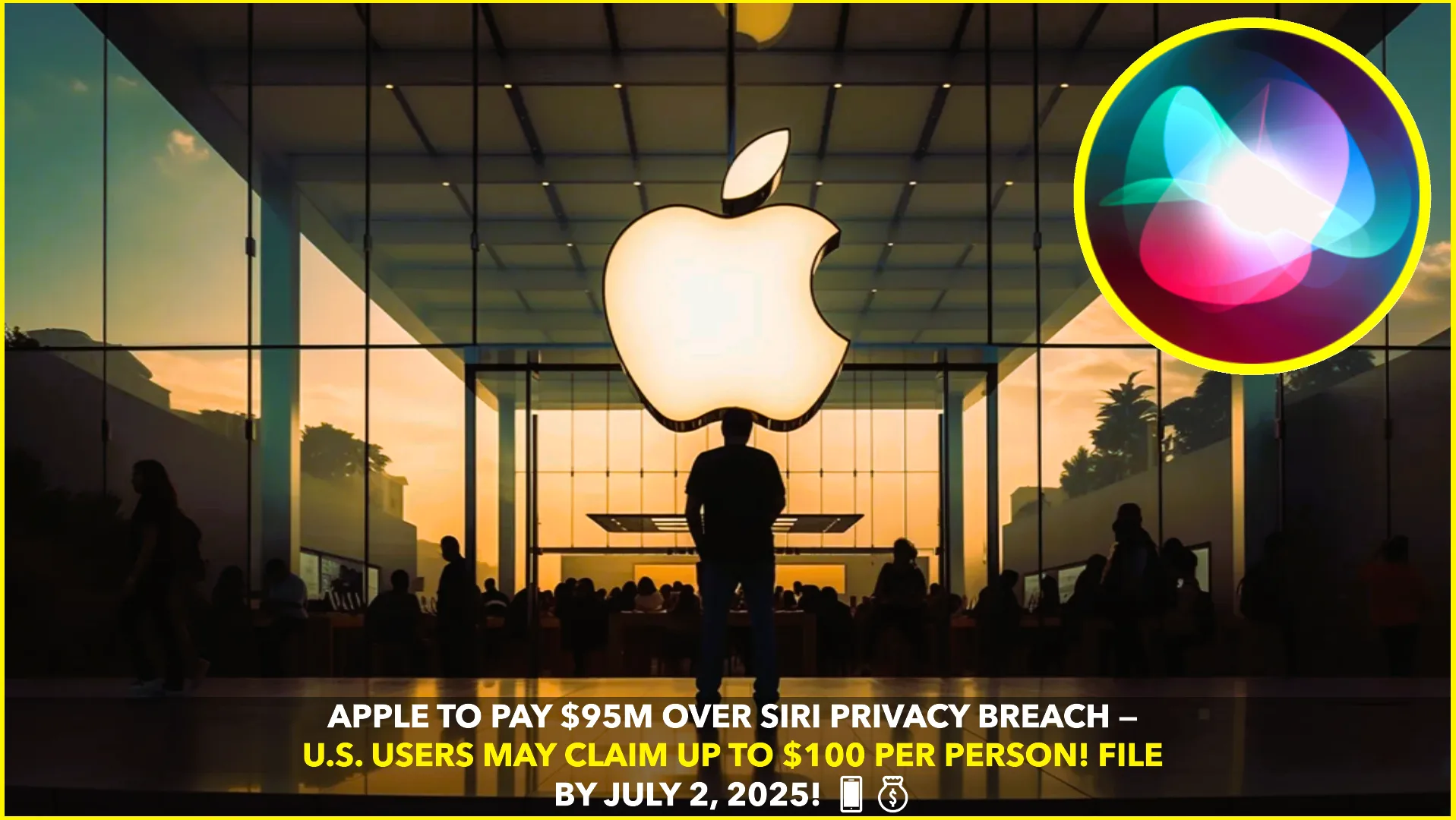Apple Inc. has agreed to pay $95 million to settle a class-action lawsuit over allegations that its voice assistant, Siri, inadvertently recorded users’ private conversations without their consent. The lawsuit claimed that Apple violated users’ privacy rights by allowing Siri to activate unintentionally and collect sensitive data, which was allegedly used for advertising and product development purposes.
The settlement, which still awaits final court approval, could provide financial compensation to millions of U.S. residents who owned Siri-enabled devices during a specified ten-year period.
Who Is Eligible?
According to the settlement agreement filed in the U.S. District Court, individuals who resided in the United States and owned a Siri-enabled device between September 17, 2014, and December 31, 2024, may qualify for compensation. Eligible devices include iPhones, iPads, Apple Watches, HomePods, Macs, and other Apple products equipped with Siri functionality.
Each claimant could receive up to $20 per device, with payments capped at $100 per person, depending on the number of valid claims submitted. The settlement does not require proof that Siri recorded a user’s conversation — ownership of a Siri-enabled device within the stated timeframe is sufficient for eligibility.
Allegations and Background
The lawsuit stems from multiple reports and media investigations that revealed Apple contractors and employees had access to audio recordings captured by Siri. Critics argued that Siri was often activated by mistake and recorded fragments of conversations that users never intended to share.
The plaintiffs alleged that Apple’s data collection practices violated privacy laws, particularly as users were not fully informed or did not explicitly consent to having their conversations recorded and analyzed. While Apple has denied any wrongdoing, it chose to settle the case to avoid prolonged litigation.
In a statement, Apple emphasized its commitment to user privacy, stating, “Privacy is built into every product we make. We do not sell user data and have implemented measures to limit inadvertent Siri activations and to anonymize any data used to improve performance.”
Filing a Claim
Affected individuals can file a claim online or by mail before the July 2, 2025, deadline. Claimants will need to provide basic information, including details about their Siri-enabled devices. No receipts or detailed technical records are required to participate in the settlement.
A final approval hearing is scheduled for August 1, 2025, where a judge will determine whether the proposed settlement is fair and should be implemented. If approved, payments are expected to be distributed within a few months after the hearing.
Data Privacy Concerns in Tech
This case highlights the growing concern among consumers about how tech companies handle voice data and personal information. Similar lawsuits have been filed against Amazon (for Alexa) and Google (for Assistant), reflecting broader anxieties about surveillance, smart devices, and data misuse.
Experts suggest that while voice assistants are designed to enhance convenience, they also pose risks when safeguards fail or transparency is lacking. This settlement may set a precedent for future actions aimed at holding companies accountable for privacy violations.
How to Learn More
For more information about the Siri settlement and to file a claim, individuals can visit the official settlement website: www.SiriPrivacySettlement.com (Note: Check the official source for the exact link).
Source:
- U.S. District Court filings
- Siri Privacy Settlement Portal
- Apple’s official privacy policy
Disclaimer: This article is for informational purposes. Individuals seeking to participate in the settlement should refer to the official settlement website or consult legal counsel for detailed guidance.










